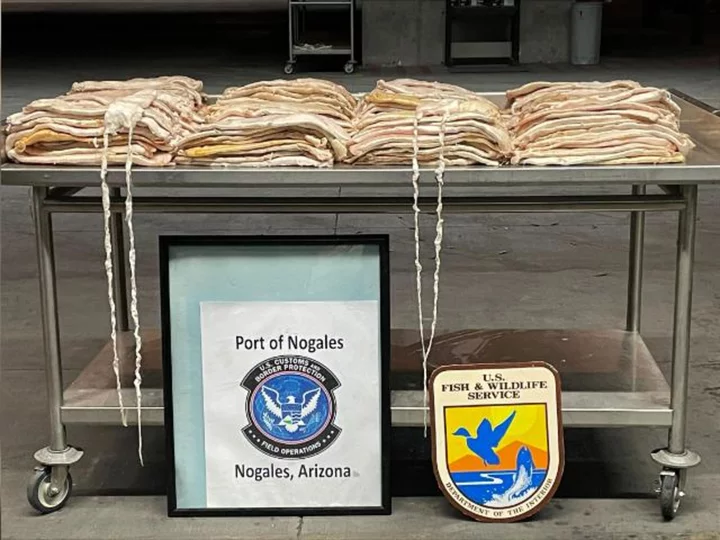US Customs and Border Protection officers in Arizona have seized 242 pounds of swim bladders -- the organ that helps fish control their buoyancy -- that came from the endangered Totoaba fish, authorities said.
Officers working at the Nogales Port of Entry in Santa Cruz County discovered 270 swim bladders hidden inside a commercial shipment of frozen fish fillets, CBP announced.
The swim bladders discovered on April 13 were valued at an estimated $2.7 million, according to a news release.
The US Fish and Wildlife Service conducted preliminary DNA testing that revealed the bladders belonged to the Totoaba macdonaldi species native to Mexico's Gulf of California. The agency took possession of the bladders and is investigating the smuggling attempt with Homeland Security Investigations.
Authorities said the seizure is likely the second largest of its kind in the US and the largest Totoaba seizure in Arizona.
Totoaba fish, whose swim bladders are considered an Asian cultural delicacy and are used in traditional Chinese medicine, are protected by the Endangered Species Act, according to CBP. The species has been listed as endangered since 1979.
Illegal fishing, habitat destruction and unintentional catches have contributed to the Totoaba fish's decline, according to the National Oceanic and Atmospheric Administration.
It's illegal to sell, take, transport or possess the federally protected species in the US and Mexico, CBP said in the release.









